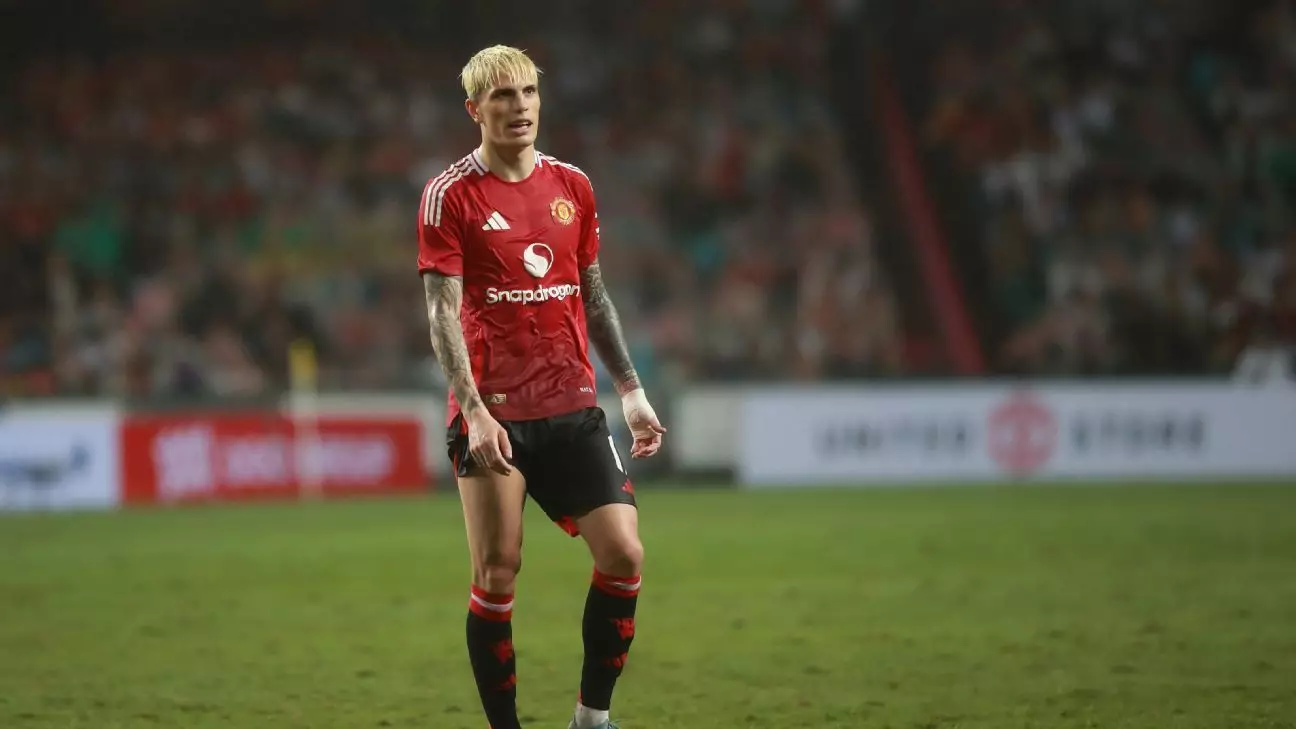Manchester United’s current approach to squad management reflects a deeper philosophy of patience, flexibility, and strategic development. Ruben Amorim, the manager, demonstrates a mature understanding that not all players fit into a rigid mold and that sometimes letting players explore their options can ultimately benefit the club. Instead of rigidly holding onto out-of-favor stars or rushing to sign new talent, Amorim advocates for an environment where uncertainty is tolerated, and opportunity is prioritized. This stance challenges traditional managerial paradigms that often favor immediate results over long-term squad cohesion and player growth.
Amorim’s openness to reintegrate players like Alejandro Garnacho, Antony, Jadon Sancho, and Tyrell Malacia if transfer deals do not materialize proves he values the players’ development and morale. It signals a belief that a team’s strength isn’t solely rooted in its roster on paper but also in its internal resilience and cohesion. This nuanced stance underscores a broader managerial trend — empowering players with choices and respecting their individual career trajectories. It’s a gamble that can turn into a tactical advantage if handled with care, fostering loyalty among players and encouraging a competitive spirit that benefits the entire squad.
The Art of Strategic Flexibility and the Transfer Market
Amorim’s comments also reveal a calculated patience in the face of an unpredictable transfer market. While some clubs hastily complete signings to appease fans or secure immediate results, United’s strategy seems rooted in meticulous assessment and timing. The manager openly recognizes that negotiations might extend to the last minute, and in doing so, he avoids rushing into signings that don’t fit the club’s true needs.
This approach suggests a strategic belief that quality over quantity should remain the guiding principle. Amorim’s focus on the readiness of his existing players — as well as the hope to bolster the squad with the right signings — demonstrates an understanding that squad depth near the start of the season can often matter more than the marquee signings that are made abruptly. The potential signing of Ollie Watkins, while still uncertain, exemplifies a pragmatic approach: if the right player is available under the right conditions, great; if not, the squad can adapt. Such confidence in the existing roster, combined with strategic acquisitions, reflects a mature understanding of team dynamics.
Developing Talent and Building a Competitive Edge
Beneath the surface, Amorim’s emphasis on player development and competition strikes at the core of sustainable success. The manager is openly optimistic about players like Josh Zirkzee and Rasmus Hojlund, emphasizing their potential to forge connections and improve through competition. In an era where clubs often prioritize acquiring star players without nurturing their existing talent, this focus on internal growth is refreshing and potentially transformative.
Furthermore, Amorim’s mention of players wanting to participate in the World Cup indicates an understanding of individual motivation as a lever for team improvement. By creating an environment where players are motivated to prove themselves on the pitch, he fosters internal competition that elevates overall performance. This mindset not only prepares the squad for immediate challenges but also builds a resilient foundation for future seasons.
Amorim’s decision to work with new signings like Matheus Cunha and Bryan Mbeumo, despite not guaranteeing starting positions, underscores his belief in creating a cohesive unit rather than simply assembling stars. Their willingness to choose Manchester United over other high-profile options indicates a shared commitment to the project — a crucial factor that can galvanize the team and translate into better results on the pitch.
A Forward-Looking Strategy with Long-Term Vision
Amorim’s leadership embodies a forward-looking philosophy that values patience, internal development, and strategic timing over short-term fixes. His flexible stance on reintegration, combined with a cautious yet confident approach to transfers, offers Manchester United a blueprint for sustainable growth. Rather than rushing to fill gaps, Amorim looks for the right fit, both in terms of personnel and team chemistry, emphasizing that the squad’s success depends on more than just individual talent.
This mindset also involves a recognition that player motivation and clarity about their roles are paramount. By openly discussing the uncertainty faced by some players, Amorim fosters an environment where dialogue and personal ambition are woven into the fabric of team dynamics. Such an environment can lead to players asserting themselves positively and competing fiercely, resulting in heightened performance and collective resilience.
This approach, while risky in the short run, could prove to be transformative in the long term. It encourages patience, develops internal talent, and underscores the importance of a unified vision over quick fixes. If embraced fully, Amorim’s strategic flexibility might not only stabilize Manchester United but also propel the club toward a future defined by resilience, internal growth, and strategic excellence.


Leave a Reply